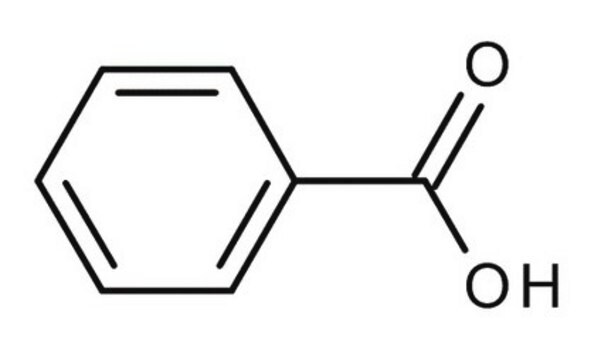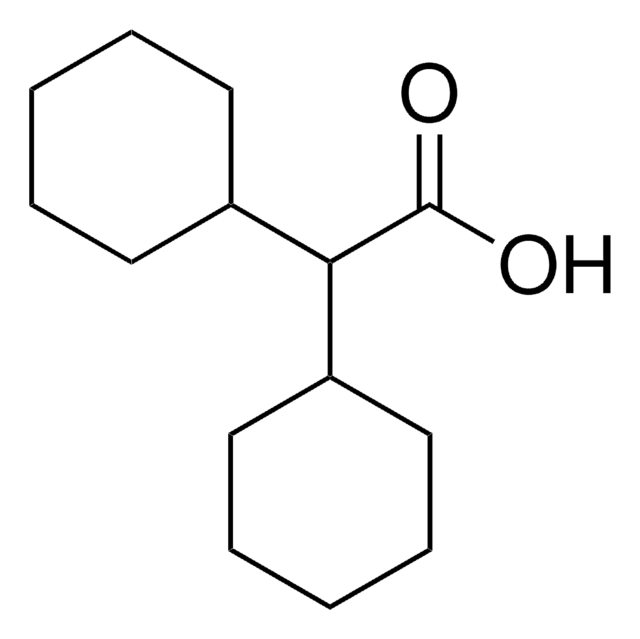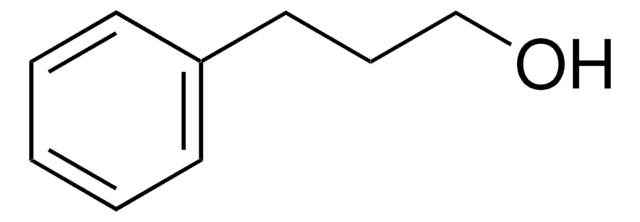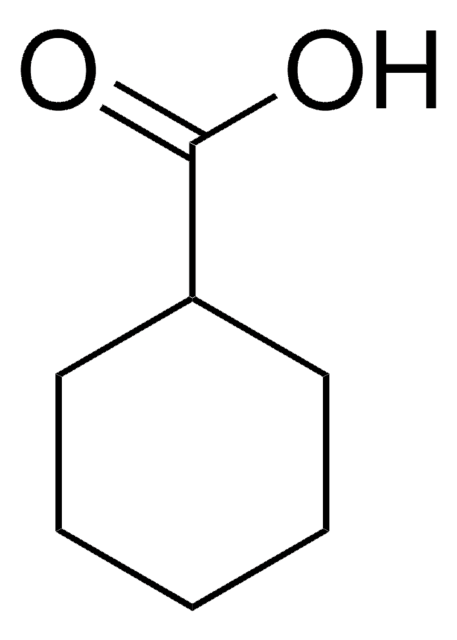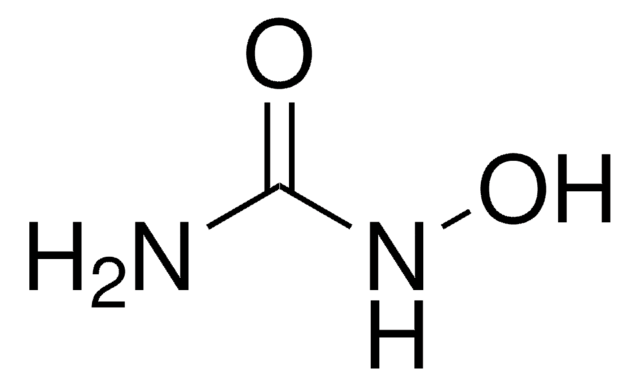P37602
5-Phenylvaleric acid
99%
Sinónimos:
5-Phenylpentanoic acid
Iniciar sesiónpara Ver la Fijación de precios por contrato y de la organización
About This Item
Fórmula lineal:
C6H5CH2CH2CH2CH2COOH
Número de CAS:
Peso molecular:
178.23
Beilstein:
2049062
Número CE:
Número MDL:
Código UNSPSC:
12352100
ID de la sustancia en PubChem:
NACRES:
NA.22
Productos recomendados
Nivel de calidad
Ensayo
99%
Formulario
crystals
bp
177-178 °C/13 mmHg (lit.)
mp
58-60 °C (lit.)
cadena SMILES
OC(=O)CCCCc1ccccc1
InChI
1S/C11H14O2/c12-11(13)9-5-4-8-10-6-2-1-3-7-10/h1-3,6-7H,4-5,8-9H2,(H,12,13)
Clave InChI
BYHDDXPKOZIZRV-UHFFFAOYSA-N
¿Está buscando productos similares? Visita Guía de comparación de productos
Categorías relacionadas
Código de clase de almacenamiento
11 - Combustible Solids
Clase de riesgo para el agua (WGK)
WGK 3
Punto de inflamabilidad (°F)
Not applicable
Punto de inflamabilidad (°C)
Not applicable
Equipo de protección personal
Eyeshields, Gloves, type N95 (US)
Elija entre una de las versiones más recientes:
¿Ya tiene este producto?
Encuentre la documentación para los productos que ha comprado recientemente en la Biblioteca de documentos.
Los clientes también vieron
I-Ching Ho et al.
International journal of biological macromolecules, 40(2), 112-118 (2006-08-22)
PHAs (poly-3-hydroxyalkanoates) obtained by Pseudomonas oleovorans grown with mixed carbon sources were investigated. Mixed carbon sources were sodium octanoate/undecylenic acid and sodium octanoate/5-phenylvaleric acid. Effect of carbon source in pre-culture on PHAs structure was investigated. Main fermentation was conducted with
I Calis et al.
Journal of natural products, 62(8), 1101-1105 (1999-09-10)
(3R)-O-beta-D-Glucopyranosyloxy-5-phenylvaleric acid (1), (3R)-O-beta-D-glucopyranosyloxy-5-phenylvaleric acid n-butyl ester (2), and a new dihydrochalcone diglycoside 4'-O-[beta-D-glucopyranosyl-(1-->6)-glucopyranosyl]oxy-2'-hydroxy-3', 6'-dimethoxydihydrochalcone (3), together with six known flavonoid glycosides [kaempferol-3-O-beta-D-glucopyranoside (= astragalin) (4), kaempferol-3-O-beta-D-galactopyranoside (5), quercetin-3-O-beta-D-glucopyranoside (= isoquercitrin) (6), quercetin-3-O-beta-D-galactopyranoside (= hyperoside) (7), quercetin-3-O-(2''-O-galloyl)-beta-D-glucopyranoside (8), and quercetin-3-O-beta-D-glucuronopyranoside
D M Chung et al.
International journal of biological macromolecules, 29(4-5), 243-250 (2001-11-24)
From a set of mixed carbon sources, 5-phenylvaleric acid (PV) and octanoic acid (OA), polyhydroxyalkanoic acid (PHA) was separately accumulated in the two pseudomonads Pseudomonas putida BM01 and Pseudomonas citronellolis (ATCC 13674) to investigate any structural difference between the two
Christopher Jewell et al.
Drug metabolism and disposition: the biological fate of chemicals, 35(11), 2015-2022 (2007-08-01)
The capacity of human, minipig, and rat skin and liver subcellular fractions to hydrolyze the anesthetic ester procaine was compared with carboxylesterase substrates 4-methylumbelliferyl-acetate, phenylvalerate, and para-nitrophenylacetate and the arylesterase substrate phenylacetate. Rates of procaine hydrolysis by minipig and human
Marie-Paule Gonthier et al.
Free radical biology & medicine, 35(8), 837-844 (2003-10-15)
Procyanidins are major dietary polyphenols made of elementary flavan-3-ol (epi)catechin units. They have antioxidant properties and may contribute to health benefits in humans, but little is known about their metabolic fate. We compared here the metabolism of procyanidin dimer B3
Nuestro equipo de científicos tiene experiencia en todas las áreas de investigación: Ciencias de la vida, Ciencia de los materiales, Síntesis química, Cromatografía, Analítica y muchas otras.
Póngase en contacto con el Servicio técnico


